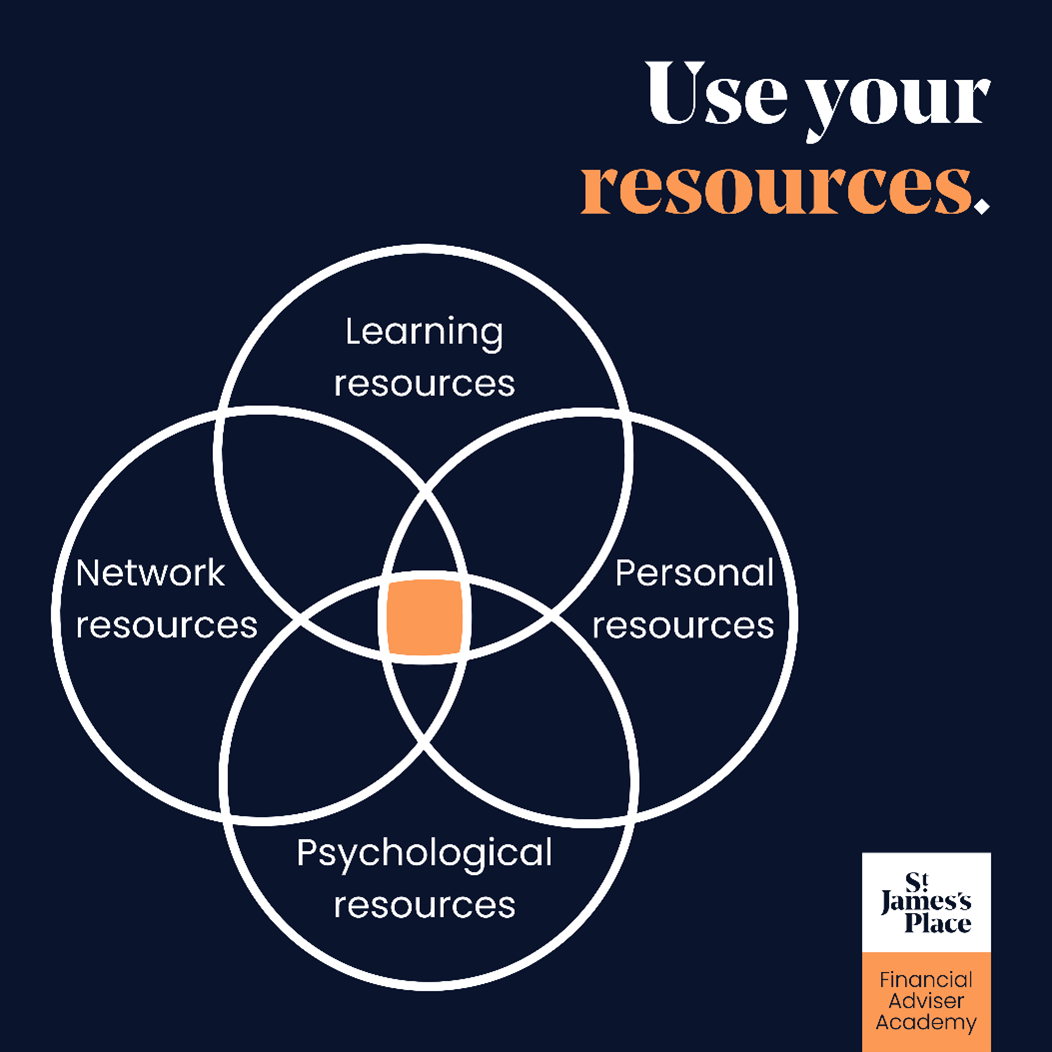Lara Plaxton spent over two decades working in HR before founding GotDis, a platform dedicated to helping early careerists and young professionals plan and apply their skills in the workplace.
We spoke to her about her top tips and she shared 4 key resources that everyone should be using when planning for their career change journey, whether you’re in your first job or transitioning from one industry to another.
“Once you have identified the career change you want to make, you’ll need to consider what resources you’ll need to enable it to happen,” Lara says.
Here are her top 4 resources to help you change career:

Learning resources
Lara’s Tip #1: “Access free, online learning materials, attend webinars and events, sign up for a course, or get involved in a project that will help you learn more practically.”
Applying the advice:
LinkedIn Learning, Udemy, EdX and even TedTalks are some of the world’s best free, online training and education services for deepening your ideas and knowledge in a subject area.
Exploring a course offers you certification and credibility when widening your career options - but don’t be afraid to look for opportunities to demonstrate your knowledge practically, for example, in the role you’re already doing. The National Careers Service also shares courses and career guidance to help you in your career change journey.
Network resources
Lara’s Tip #2: “Build your network to include connections who work in the career you want to explore. Ask your connections questions about their career or find a mentor who aligns with the direction you are going in.”
Applying the advice:
Alternative: When you hear the word ‘networking,’ LinkedIn is often the first relevant platform that springs to mind. But are you truly leveraging this website to its full potential? For many, the interaction ends once both parties have clicked the ‘accept connection’ button. In reality, that’s just the starting point.
Take the next step: reach out to your connections and arrange brief 5-10 minute conversations. Use this time to discover more about their career journeys, gain insights from their personal and professional experiences, and uncover their valuable career advice - their answers to ‘what to do’ and ‘what to avoid’ will be illuminating. These small actions can turn simple connections into meaningful relationships.
Psychological resources
Lara’s Tip #3: “You’ll need to have the right mindset to change careers, as you will inevitably face challenges along the way. Work on your confidence and assess the risk against the reward to reduce any fear you may have.”
Applying the advice:
‘Fake it ‘til you make it’ is a good practice to have in life and especially as career-changers. Keeping your existing skills in mind can boost your confidence and help you see how your current capabilities can be applied in new roles in your new career. Confidence, particularly when exploring new things, is something that is both incredibly hard, and incredibly necessary, to help make change possible.
Being sure of yourself enables you to have confidence in your choices, so don’t be afraid to get introspective to influence your future. Conducting a SWOT (strengths, weaknesses, opportunities and threats) analysis in writing or taking some psychometric tests like the Myers-Briggs Type Indicator test or the Princeton Review Career quiz, can help you understand your personality type and is a great way of getting in touch with yourself at a time when lots of things around you are changing. Exploring your personality type can help guide your job search by aligning your personal strengths and motivations with suitable career paths - hopefully finding a perfect career for you.
Personal resources
Lara’s Tip #4: “Making a career change will require the support of those closest to you as it might impact your financial situation temporarily or require more of your time whilst you upskill, so talk it through with them so you know you have their support.”
Applying the advice:
Lean on the people around you for support; loved ones, family members, friends, co-workers, mentors. They are the people who know you the best, your biggest team and have your best interests at heart. They are your biggest supporters, bar one person: you.
Investing in your personal resources also means investing in yourself. Career changes aren’t always easy, otherwise, everyone would do them. Don’t make it harder by failing to use the resources around you – which includes putting your strength, talents, ambition, skills and resilience to the test. Done right, a career change just might be the best decision you ever made for yourself and even your mental health and well-being.
“Make sure you do the right thing and make the most of these resources, because most of them are already at your disposal,” Lara says.
If you’re considering a career change, why not have a conversation with one of our business managers to see whether financial advice might be a good next career change for you?
If you’re considering switching careers, the St. James’s Place Financial Adviser Academy is an award-winning career change programme that trains people to become financial advisers. Fill out our contact form to start a conversation.
To learn more about the GotDis platform, please visit their website.